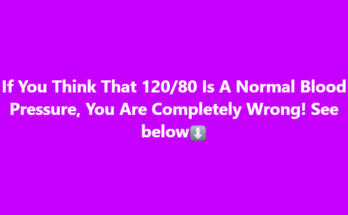High cholesterol is one of the most common yet silent health problems worldwide. It doesn’t cause immediate symptoms, but over time, it can clog arteries, restrict blood flow, and increase the risk of heart disease, stroke, and other cardiovascular issues.
While medication such as statins can effectively lower cholesterol, many people prefer to explore natural, lifestyle-based approaches first — either to prevent problems or as a complement to prescribed treatments. The good news is that with the right habits, you can significantly lower your cholesterol without medication and improve your overall heart health.
This article explores the most effective, science-backed ways to reduce cholesterol naturally — from dietary changes and exercise to stress management and sleep.




1. Understand What Cholesterol Really Is
Before jumping into solutions, it helps to understand what cholesterol does.
Cholesterol isn’t inherently bad — your body actually needs it to build cells, produce hormones, and aid digestion. The problem arises when levels become imbalanced, particularly when there’s too much of the harmful type.
There are three main types:
-
LDL (Low-Density Lipoprotein): Often called “bad cholesterol,” high levels of LDL lead to plaque buildup in arteries.
-
HDL (High-Density Lipoprotein): Known as “good cholesterol,” HDL helps remove LDL from the bloodstream.
-
Triglycerides: Another type of fat that, when elevated, increases heart risk.
The goal is not to eliminate cholesterol but to reduce LDL and triglycerides while maintaining or increasing HDL.
2. Eat More Heart-Healthy Fats
Not all fats are equal. Some fats help lower LDL cholesterol and raise HDL levels.
a. Choose Unsaturated Fats
-
Found in foods like olive oil, avocados, nuts, and seeds.
-
These fats improve the ratio of good to bad cholesterol.
-
Replace butter, margarine, or shortening with olive or canola oil when cooking.
b. Include Omega-3 Fatty Acids
-
Found in fatty fish (salmon, mackerel, sardines) and plant sources like flaxseed and chia.
-
Omega-3s don’t lower LDL directly but reduce triglycerides and prevent artery inflammation.
-
Aim for at least two servings of oily fish per week.
c. Limit Saturated and Trans Fats
-
Saturated fats (in red meat, butter, and full-fat dairy) raise LDL levels.
-
Trans fats (in fried or processed foods) are even worse, lowering HDL and raising LDL simultaneously.
-
Check food labels for “partially hydrogenated oils” and avoid them entirely.
3. Increase Soluble Fiber Intake
Soluble fiber acts like a sponge in the digestive system — it binds to cholesterol and helps flush it out of the body before it enters the bloodstream.
Excellent sources include:
-
Oats and oat bran
-
Beans and lentils
-
Apples, pears, and citrus fruits
-
Ground flaxseeds
-
Vegetables like Brussels sprouts and carrots
Aim for 25–30 grams of total fiber per day, with at least 5–10 grams coming from soluble fiber.
A simple breakfast of oatmeal topped with berries and chia seeds can provide a strong start toward your daily goal.
4. Maintain a Healthy Weight
Even a small amount of weight loss can significantly lower LDL cholesterol and triglycerides while increasing HDL.
Losing just 5–10% of your body weight can improve cholesterol levels and reduce heart disease risk. The key is consistency — not crash dieting.
Tips for sustainable weight management:
-
Focus on whole, unprocessed foods.
-
Eat smaller portions and avoid mindless snacking.
-
Keep a food journal to track habits and progress.
-
Combine healthy eating with daily physical activity.
5. Exercise Regularly
Physical activity is one of the most powerful natural tools for balancing cholesterol.
How Exercise Helps:
-
Raises HDL (“good”) cholesterol.
-
Reduces LDL and triglycerides.
-
Improves blood circulation and strengthens the heart.
Recommended Activities:
-
Aerobic exercise: brisk walking, cycling, jogging, or swimming (at least 150 minutes per week).
-
Resistance training: weightlifting or bodyweight exercises (2–3 times per week).
-
Active lifestyle: take stairs instead of elevators, park farther away, or walk during breaks.
Even moderate daily activity can make a measurable difference in cholesterol levels.
6. Reduce Sugar and Refined Carbohydrates
Most people associate cholesterol with fat — but excess sugar and refined carbs are also major culprits. When you eat too many sugary foods or processed grains, your liver converts the excess into triglycerides and LDL cholesterol.
Avoid or limit:
-
Sugary drinks (sodas, energy drinks, sweetened teas)
-
Pastries, white bread, and processed snacks
-
Breakfast cereals high in sugar
Instead, focus on complex carbohydrates such as whole grains, quinoa, oats, and vegetables, which provide fiber and nutrients without spiking blood sugar.
7. Quit Smoking
Smoking damages blood vessel walls, making it easier for cholesterol to build up and form plaques. It also lowers HDL cholesterol, depriving your arteries of their natural “clean-up crew.”
The benefits of quitting begin almost immediately:
-
Within 20 minutes, blood pressure drops.
-
Within a few weeks, HDL cholesterol levels rise.
-
Long-term, the risk of heart disease and stroke declines dramatically.
If you smoke, quitting may be the single most important step toward improving your cholesterol and overall cardiovascular health.
8. Limit Alcohol Consumption
Moderate alcohol intake may raise HDL levels slightly, but excessive drinking increases triglycerides, blood pressure, and heart disease risk.
Guidelines for moderation:
-
Up to one drink per day for women.
-
Up to two drinks per day for men.
If you don’t drink, there’s no need to start — the risks of heavy drinking outweigh the small benefits.
9. Manage Stress Effectively
Chronic stress affects cholesterol levels more than most people realize. When under stress, the body releases cortisol and adrenaline, which can:
-
Increase LDL and triglyceride levels.
-
Lower HDL cholesterol.
-
Trigger emotional eating and weight gain.
Practical ways to reduce stress:
-
Practice deep breathing or meditation for 10 minutes daily.
-
Try yoga, tai chi, or gentle stretching.
-
Engage in hobbies that relax your mind.
-
Get regular sleep and maintain social connections.
Reducing stress doesn’t just help your mood — it protects your heart.
10. Prioritize Quality Sleep
Poor sleep disrupts the body’s hormone balance, including those that regulate cholesterol and metabolism. People who sleep less than 6 hours per night often have higher LDL and triglycerides and lower HDL.
Tips for better sleep hygiene:
-
Maintain a consistent bedtime routine.
-
Avoid screens and heavy meals before bed.
-
Keep your room cool, quiet, and dark.
-
Aim for 7–8 hours of quality sleep each night.
Restful sleep gives your heart and arteries time to repair and maintain balance.
11. Incorporate Cholesterol-Lowering Foods
Several specific foods have natural cholesterol-lowering properties:
-
Nuts: Almonds, walnuts, and pistachios improve HDL levels.
-
Soy products: Tofu, soy milk, and edamame can modestly reduce LDL.
-
Green tea: Contains catechins that reduce cholesterol absorption.
-
Garlic: Regular consumption helps lower LDL and blood pressure.
-
Dark leafy greens: Spinach and kale contain compounds that block cholesterol absorption in the gut.
Including these foods daily can make a noticeable difference over time.
12. Get Regular Health Checkups
Even with healthy habits, it’s essential to monitor cholesterol levels through routine blood tests. Knowing your numbers — total cholesterol, LDL, HDL, and triglycerides — helps you track progress and make adjustments early.
If lifestyle changes alone aren’t enough, your doctor may recommend supplements or medication. However, many people successfully maintain healthy cholesterol through consistent lifestyle management alone.
13. Be Patient — and Consistent
Natural methods take time. You might not see results in a week, but within 8–12 weeks, consistent lifestyle changes can lead to significant improvements in cholesterol and heart health.
Think of it not as a short-term fix but a long-term lifestyle investment that supports your heart, brain, and overall vitality.
Conclusion: Taking Control Naturally
Lowering cholesterol without medicine is entirely possible — and often the healthiest approach. By focusing on whole foods, physical activity, stress control, and sleep, you can balance your cholesterol, strengthen your heart, and feel more energized every day.
Your heart’s health is in your hands — and with the right habits, you can protect it naturally, effectively, and for life.



